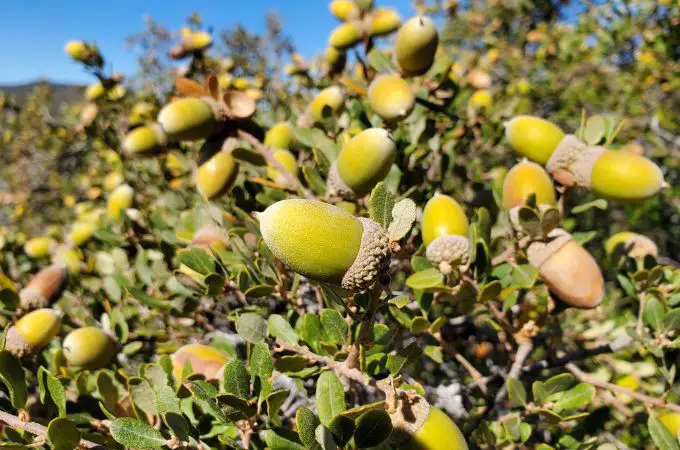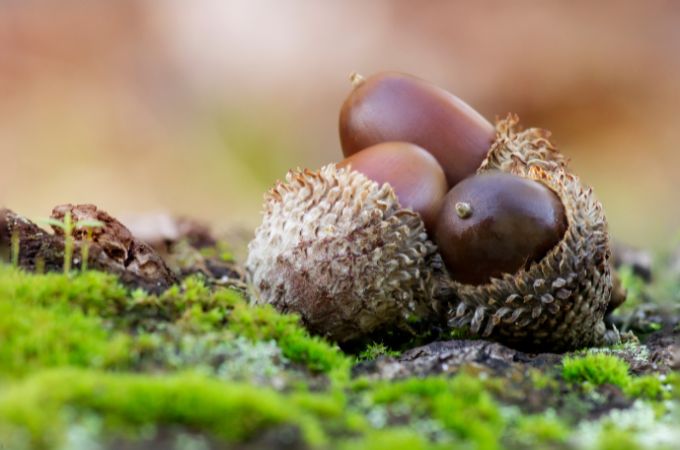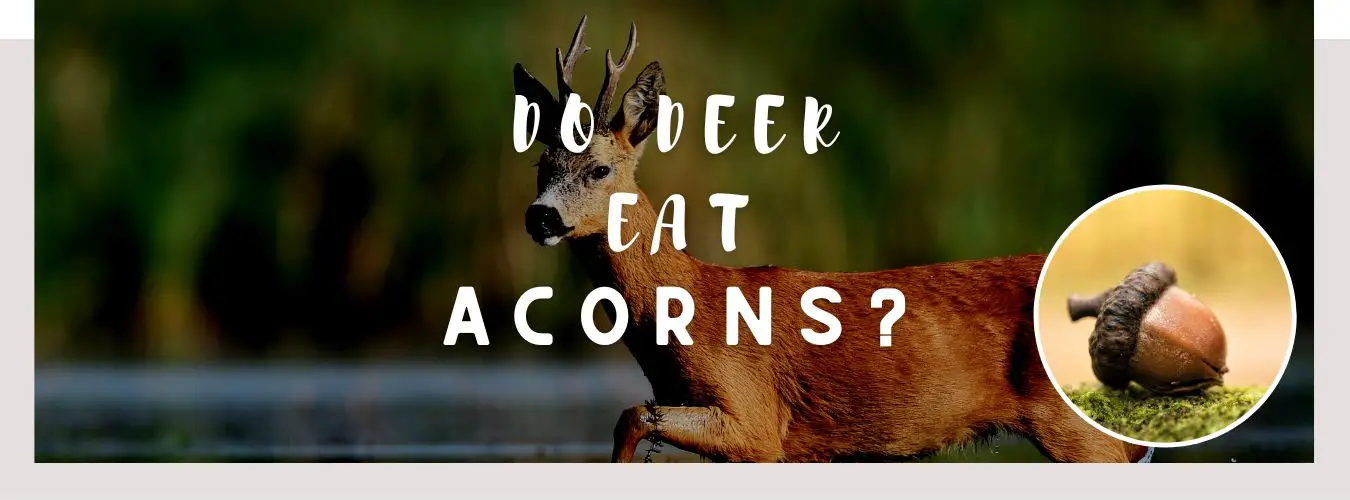
Yes, deer do eat acorns. In fact, acorns are a staple food source for many species of deer, including white-tailed deer, mule deer, and sika deer. During the fall, when acorns are ripe and abundant, deer will often feed on them for hours at a time, consuming large quantities of acorns in a single sitting. This is because acorns are rich in nutrients, including carbohydrates, protein, and fats, which help deer to build up their energy reserves for the winter months ahead.
What are Acorns and why are they Important for Deer?
Acorns are the nuts of oak trees, which are widely distributed throughout the world and grow in a variety of habitats, from temperate forests to tropical savannas. They are a keystone food source for many wildlife species, including deer, squirrels, and birds, and are also an important part of the diet of indigenous people in many regions.
Acorns are important for deer because they provide a high-energy food source that is rich in nutrients. This makes them especially valuable during the fall and winter months, when other food sources may be scarce. In addition, acorns are also a source of fiber and minerals, which are essential for good health and growth.
You might also like: Do Deer Eat Strawberries?
What are the Different Types of Acorns and do they Affect Deer Feeding Habits?

There are two main types of acorns: sweet acorns and bitter acorns. Sweet acorns are preferred by deer because they are less bitter and more palatable than bitter acorns. However, bitter acorns are still consumed by deer when sweet acorns are not available.
The type of acorn that is available can affect deer feeding habits, as deer will often switch to feeding on a different type of acorn if their preferred type is not available. For example, if sweet acorns are abundant, deer will feed on them exclusively, but if they become scarce, deer may switch to feeding on bitter acorns instead.
What Factors Influence Acorn Availability and how does this Affect Deer Feeding Habits?
Acorn availability is influenced by a number of factors, including weather conditions, disease, and herbivory by other wildlife species. For example, if acorn production is low due to a dry growing season or disease, there may not be enough acorns to sustain the deer population, and deer may have to switch to feeding on other food sources.
In addition, acorn availability can be influenced by herbivory, as other wildlife species, such as squirrels and birds, may consume large quantities of acorns before they are available to deer. This can have a significant impact on deer feeding habits, as it can reduce the amount of acorns available to deer, forcing them to switch to feeding on other food sources.
You might also like: Do Deer Eat Lavender?
What is the Role of Acorns in Deer Nutrition and why are they Important for Deer Health and Survival?

Acorns play a critical role in deer nutrition, as they provide a high-energy food source that is rich in nutrients. These nutrients are essential for good health and survival, as they help to build up the energy reserves that deer need to survive the winter months.
In addition, acorns are also a source of fiber and minerals, which are important for maintaining good health and growth. For example, acorns are a good source of calcium, phosphorus, and potassium, which are essential for strong bones and healthy muscles.
Conclusion
In conclusion, deer do eat acorns and they play a critical role in deer nutrition. Acorns are a high-energy food source that is rich in nutrients, including carbohydrates, protein, and fats, which help deer to build up their energy reserves for the winter. The type of acorn that is available can affect deer feeding habits, as deer will often switch to feeding on a different type of acorn if their preferred type is not available.
Acorn availability is influenced by various factors, including weather conditions, disease, and herbivory by other wildlife species. It is important to understand the role of acorns in deer nutrition and how they influence deer health and survival. This knowledge can help us to better manage and conserve deer populations, as well as the oak forests that provide this valuable food source.
In conclusion, acorns play a crucial role in deer nutrition and are an important part of their diet. By understanding the factors that influence acorn availability and how they affect deer feeding habits, we can work towards preserving this critical food source for future generations of deer and other wildlife species.
Contents
- 1 What are Acorns and why are they Important for Deer?
- 2 What are the Different Types of Acorns and do they Affect Deer Feeding Habits?
- 3 What Factors Influence Acorn Availability and how does this Affect Deer Feeding Habits?
- 4 What is the Role of Acorns in Deer Nutrition and why are they Important for Deer Health and Survival?
- 5 Conclusion









